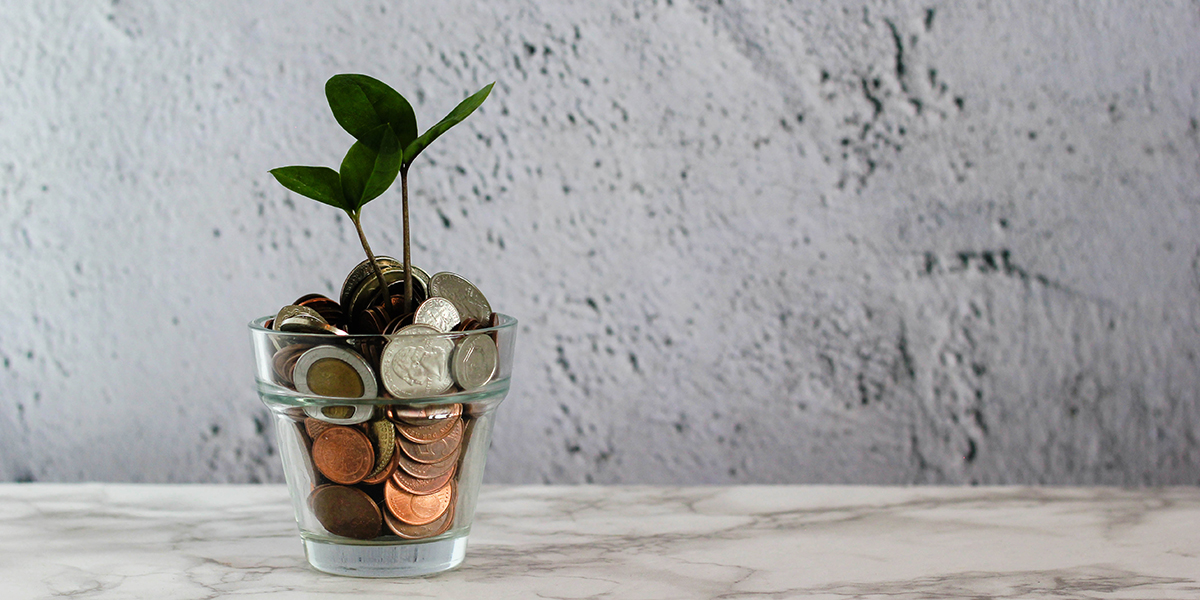Note: This simple budget article is from contributing editor, Tammy Strobel.
Learning how to manage our finances is one reason my husband and I simplified our lives. Uncertainty around money was a source of stress for us. We didn’t know how much money we had or how much we owed. In essence, not knowing how to manage our money created anxiety in our lives.
We began to declutter our finances by setting a few goals. Those goals included following a budget and paying off my student loan debt. At first, I felt scared to start a budget. The process surprised me, though. Creating and keeping a simple budget empowered us to save more, spend less, and dream big.
Budgeting also provided certainty around money. For example, we were able to estimate how long it would take to pay off our debt. We also started investing our money. And, budgeting helped us let go of guilt for spending money on things we loved like travel. By making a few necessary adjustments we improved our relationship with money and with each other.
How a simple budget will change how you feel about your money.
Berna Anat — “the internet’s Financial Hype Woman” — said, “So a budget is an ugly word for a beautiful thing . . . Budgeting in general is just rules for how you spend your money. And it’s your rules for how you spend your money.”
When we created our first budget, we were in a tough financial situation. However, making a budget was a small step (not as time-consuming as I thought) that helped us feel better about our finances. It wasn’t a punishment. Instead, budgeting turned out to be enjoyable.
The process helped us reach our short and long-term goals when it came to our finances. It also helped me to better understand and change some of my spending habits. Plus, budgeting continues to help us:
- reduce anxiety,
- increase financial awareness,
- examine the stories we attach to money,
- feel in control of our finances,
- and have honest conversations about money.
It might take time to find a budgeting system that works for you. For example, we’ve tried budget apps, a monthly budget template, software, and physical notebooks over the years. Now, we use a simple excel budget spreadsheet to keep track. It covers things like monthly income, expenses from health insurance to entertainment. Finding something that you can use with ease will help you maintain the habit of budgeting.
Remember to keep experimenting, and choose budgeting tools that work for you.
3 Easy Ways to Declutter Your Finances
It’s easier to organize your stuff once you’ve decluttered and let go of most of it. The same is true for some parts of your financial life. Decluttering your finances is one way to make money management easier.
Below are three ways to declutter your finances:
1.) Create a budget.
“Budgeting is not about being handcuffed. It’s really about being liberated,” says Jesse Mecham, founder of the budgeting software You Need A Budget.
If you’re new to tracking your finances, try the following ideas:
- Make a 50/30/20 monthly budget. It’s a simple tool that will help you get a handle on your finances. Consider using NerdWallet’s free budget calculator to get started. The folks at NerdWallet explain, “Our 50/30/20 calculator divides your take-home income into suggested spending in three categories: 50{a88c2e440a3fe0d009682811ffc0ce83172d8ed124d1bbbcc9619763e6f2b009} of net pay for needs, 30{a88c2e440a3fe0d009682811ffc0ce83172d8ed124d1bbbcc9619763e6f2b009} for wants and 20{a88c2e440a3fe0d009682811ffc0ce83172d8ed124d1bbbcc9619763e6f2b009} for savings and debt repayment.”
- Try zero-based budgeting. Best Wallet Hacks has a free and helpful zero-based budget guide on their website. I’m a budgeting nerd, and I love this idea! “A zero-based budget is a straightforward concept that not enough people understand. The concept is simple: Make sure every dollar you bring in has a designated purpose,” says Laurie Blank.
- Use the envelope method. Watch an example of the cash envelope budgeting method on TikTok. This is a great tool for young people who might not have a bank account yet.
2.) Simplify your accounts.
Consider consolidating your accounts. For example, we closed unused accounts like credit cards and savings accounts. Simplifying our accounts makes managing our money less stressful.
3.) Automate your bills & savings.
If you can, set up automatic payments for recurring bills. This saves time, postage, and hopefully you won’t have late fees. I’m a big fan of automation; especially for saving money. You may be able to automate payments for your emergency fund, rent or mortgage payments and other transactions.
Ben Gran and Kat Aoki said, “Automation takes the conscious decision to save versus spend off your plate by making it automatic. When the inevitable unexpected expense arises, you’ll already have the padding there to avoid going into debt or forgoing other necessities.”
11 Tips For A Simple Budget
These ideas are based on my life experience and readings. Remember, there is no one right way to budget. Experiment, use the tools that work for you, and have fun with the process.
1.) Incorporate community into your budgeting process.
Talk to friends about how you manage your money. You can also find creators online who will teach you about budgeting. Finding a community and having conversations about budgeting will make you feel less alone.
2.) Question your assumptions.
If you don’t like budgeting, question your assumptions and explore your stories around money. It’s also an opportunity to figure out how to make the process more enjoyable.
3.) Set a goal.
When we started to budget, we wanted to pay off my student loan debt and live within our means. Once we accomplished our goals, we started to save for a tiny house and travel. You may want input from a financial advisor too. That can help focus on money facts instead of money fear. Since personal finance is personal, your goals will be unique to your life circumstances.
4.) Evaluate large expenses.
“A roommate is worth a thousand coffees,” says author Kristin Wong. In an interview with “Life Kit,” Wong said that it’s “unlikely you’ll reach your budget goal just by cutting back on coffees. Housing, food and transportation are usually the biggest expenses.” If you’re able to cut back on large expenses, Wong said you’ll save more money.
5.) Prioritize essential expenses.
For us, this includes rent, utilities, groceries, and cat care. After the essentials are taken care of, we allocate money to categories like eating out, travel, and savings. Understanding our costs is empowering, and it reduces our anxiety.
6.) Don’t forget to save.
Saving money is a big part of our money management practice. Also, once we paid off my student loan debt, we started to save that same amount for other financial goals. If you’ve paid off student loans or consumer debt, consider saving your extra money.
7.) Use separate bank accounts.
Consider use a separate savings or checking account for your fixed expenses and automatic payments. A friend uses this strategy for her fixed expenses, savings, and “frivolous purchases.” She thinks of this as a digital envelope system.
8.) Consider small expenses.
Don’t forget to include ATM fees, clothing, and recurring subscriptions in your budget. Little expenses add up quickly!
9.) Schedule a regular money date.
My husband and I talk about money once a week – sometimes more. Together, we review our income, expenses, savings goals, and more. We try to pair our money date with a good cup of coffee and cake. This makes our routine money talks even more fun.
10.) Experiment, experiment, and experiment.
Try different budgeting methods like a simple spreadsheet, budgeting apps like You Need A Budget, or a physical notebook and pen. It’s essential to use tools that work for you.
11.) Journal about budgeting and money.
“What if you could spend more on the things you love?” asked best selling author Ramit Sethi in an interview with Charlotte Cowles. I loved pondering this question. It helped me think differently about my budgeting process and what I want to spend my money on. Consider journaling a response to this question. It might generate new ideas, and reframe the stories you tell yourself about budgeting and spending money.
Resources to help you create a simple budget
Looking for more budgeting resources? Here’s a list to aid your efforts:
- Read the updated edition of Your Money or Your Life by Vicki Robin and Joe Dominguez. The authors offer in-depth budgeting advice.
- Check out Berna Anat’s new book — Money Out Loud. It’s on my reading list. Also, Berna Anat’s YouTube channel is another helpful resource.
- Oh My Dollar! is an “inclusive, no-judgment place to talk about money for people of all incomes.” They make “the scary stuff of money approachable with a dash of glitter and a lot of cat puns.”

